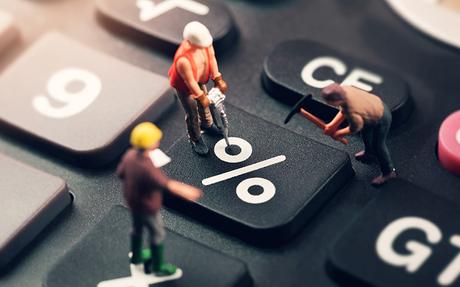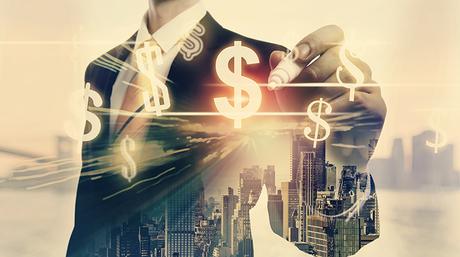The cryptocurrency currency market is notoriously volatile but in recent times, certainly since Brexit and numerous global political elections, fiat exchange rates have fluctuated as much as 5% from one week to the next. This level of currency movement does not matter what the type can have a major impact on the cash flow and profitability of businesses that trade internationally. It’s all linked to the US dollar and certainly makes payments for goods and services less stable than before.
Risk management includes planning ahead and can minimise exposure, which is why it’s so important to stay up-to-date with the latest currency news.
Our guide below gives you a brief overview of what to be aware of that will have an impact on both a cryptocurrency and foreign exchange market movements.
Inflation
We know it’s boring but Inflation is a major economic indicator and does cause considerable swings in exchange rates.
Various countries have a few different measurements for inflation but the monthly Consumer Price Index (CPI) is generally seen as the preferred measure by most investors and it’s applicable to most countries.
Typically, a country with lower inflation rates would expect to see the value of their currency rise, indicating strong consumer spending power. Post financial crash in 2008, central banks had to slash interest rates but now after a general global recovery, inflation is gradually rising. The city will like to see controlled rises to prevent inflation from running too aggressively for too long, while low inflation could lead to rate cuts back down despite them being at historic lows.
Interest rates

Every country’s interest rate is set by their Central Bank and is a valuable tool to manipulate or influence inflation (as above) and currency values. This seems to link to the cryptocurrency market too. Raising interest rates encourages consumers to save their money rather than spend it as they can get more money for it being in a savings bank, pensions and investments. Another key piece is keeping a lid on inflation, but also offering greater returns for lenders (financial institutions), in theory helping to attract foreign capital and prompts exchange rates to rise.
Central banks will often try and prevent any major shocks to the market by communicating their interest rate plans well ahead of time and will usually use their regular policy (monthly) meeting as a way of offering some forward guidance and giving “the city” stability as best they can.
Interest rate moves are often a major catalyst for movement in exchange rates, with shifts of over 1% fairly common after a rate hike decision, central bank policy meetings and calls are viewed as a major data releases in the financial calendar across all major continents not just the country in question.
Political stability, or lack of it
We are British, and we have Theresa May as our Prime Minister, so we know all about political instability and a useless cabinet and government. If you’re one of our American readers, you will also understand this (no need for details… ahem… Trump). There’s nothing currency markets hate more than uncertainty and our value of the £ is evidence of this. Oh, wait there is, uncertainty involving politics or a possible change in government. We could write a whole article on this topic alone.
Currency traders typically favour currencies belonging to political and economic stable countries due to the likelihood of their delivering a return on investment such as the Swiss Franc or Japanese Yen. These safe haven currencies have strong, popular governments, sound economic plans and infrastructure and generally, don’t entertain war or a strong, invasive foreign policy.
In the wake of the UK’s decision to break from the EU known as “Brexit”, the impact of politics on the currency market has become even more pronounced, with events like 2017’s snap election triggering significant shifts in the value of the pound. This has now caused brokers and commentators to see the value of a currency as the cleanest way to determine the sentiment and the strength of a countries economic outlook.
Political upheaval in Europe and fears about a rise in populism have also had a detrimental impact on euro exchange rates in recent years, as Donald Trump’s chaotic Presidency has had plenty of impact on the US dollar.
Economic growth (macro and micro)

Most causes and catalysts of the majority of day-to-day movements in the currency market are driven by the various pieces of economic data published by individual countries. One of the most important of these releases is Gross Domestic Product (GDP), which provides the broadest measure of how an economy is performing. This is generally what analysts will be referring to whenever they discuss ‘growth’ and will be a fundamental measure as to when an economy has entered a recession.
Economists are great at analyzing the past and not great at accurately predicting the future. GDP is known as a lagging indicator, with estimates of growth usually coming months after events and trends have occurred.
It’s typically an accumulation of small parts of economic data that build into a macro picture of GDP which prompts the largest reaction in FX markets.
Rumour, leaks and speculation
It’s not just school where this activity occurs. All the above points feed into how investors perceive (crucial word) a currency or stock will perform both in the short and long-term.
Should traders believe an asset, stock, equity or (crypto) currency is likely to increase in value then they will purchase it in order to sell it in the future for profit, or vice versa if they forecast that the currency will weaken. This “speculation” is not guesswork or gambling but a way of getting ahead of the market can, in large volume, impact on values. For currency, it usually moves long before an event as demand is driven by investors looking to make a profit and acting on the speculation.
An example, however, when this didn’t go to plan was when analysts forecast a Hilary Clinton victory when in fact, Trump triumphed in the 2016 Presidential election. The market had factored and built in an economic forecast with this situation but in fact, there was no chaos and immediate drop in the US dollar.
The main takeaway is always to know what will make a market move and why it has moved. Using both lagging and leading indicators, technical or fundamental will keep you as equipped as possible to either maximise profit or minimize potential loses.

